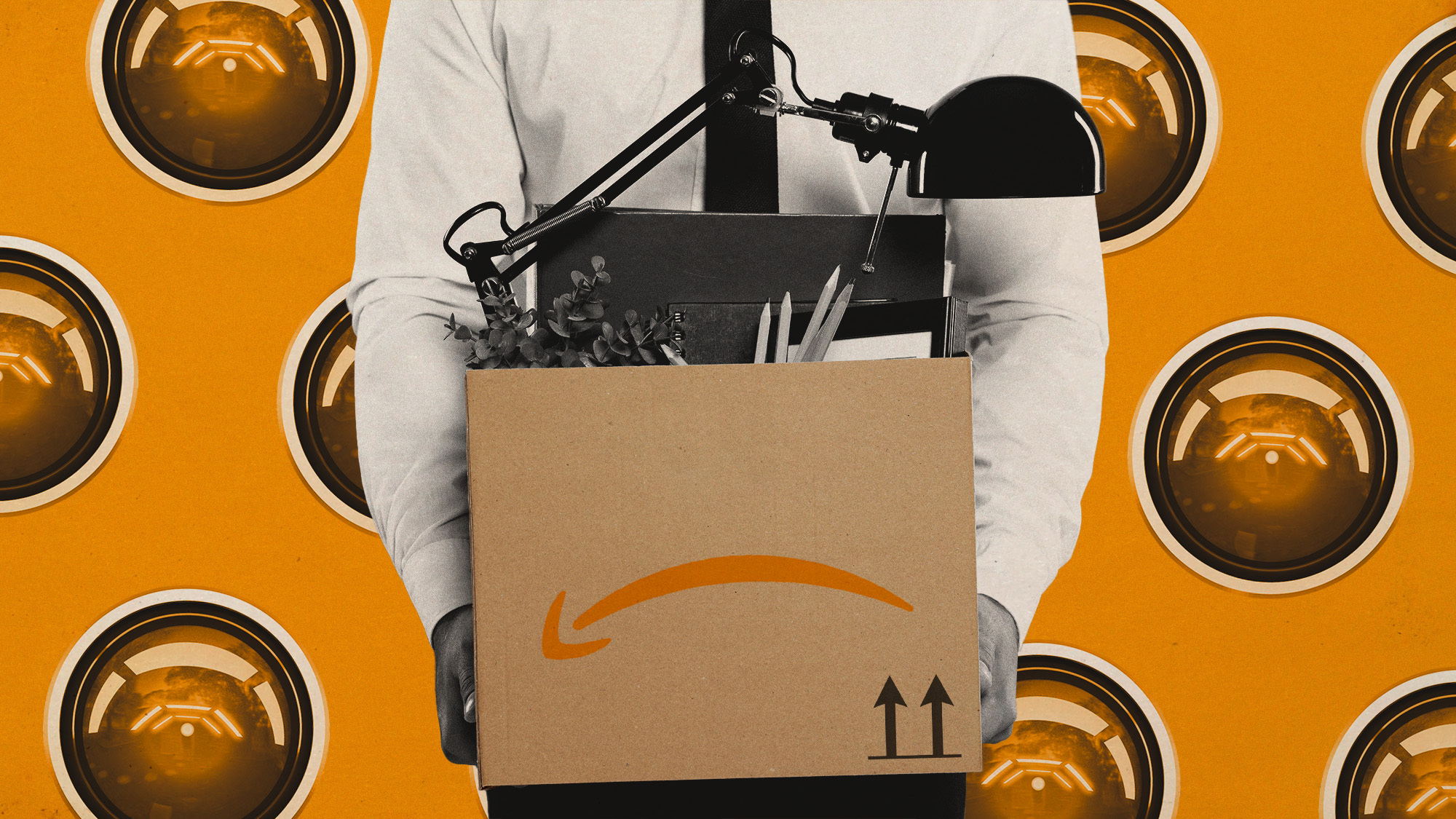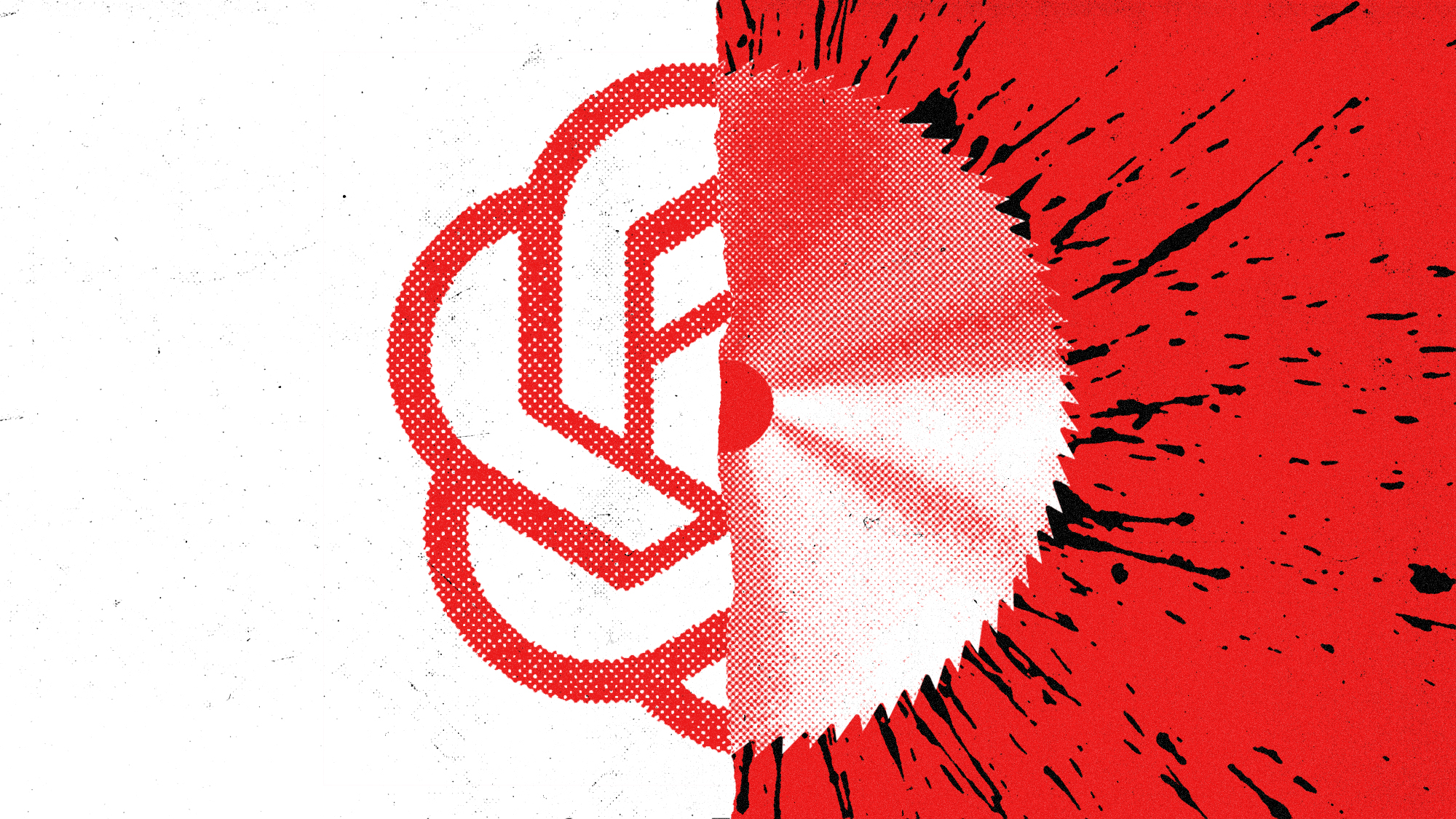Meta on trial: What will become of Mark Zuckerberg's social media empire?
Despite the CEO's attempt to ingratiate himself with Trump, Meta is on trial, accused by the U.S. government of breaking antitrust law


A free daily email with the biggest news stories of the day – and the best features from TheWeek.com
You are now subscribed
Your newsletter sign-up was successful
Meta is fighting for its future. Despite CEO Mark Zuckerberg's attempt to ingratiate himself with President Donald Trump, his company is now on trial in federal court, accused by the U.S. government of breaking antitrust law by buying Facebook rivals like Instagram and WhatsApp rather than competing with them. A loss could tear the company apart.
The trial "seeks to break up" Zuckerberg's empire, said Politico. The Federal Trade Commission claims Meta has a monopoly in the "personal social networking" sector because of anti-competitive practices: The company bought Instagram for $1 billion in 2012 "because Meta could not meet that threat through competition," said Daniel Matheson, the government's lead attorney. But Meta said in a statement that the lawsuit "will make companies think twice before investing in innovation, knowing they may be punished if that innovation leads to success."
What did the commentators say?
Zuckerberg personally lobbied Trump to "agree to a settlement" that would have avoided the trial, said The Wall Street Journal. Zuckerberg's pre-trial lobbying efforts "frustrated" White House aides who believed he had been "too aggressive." In recent months, said Axios, Zuckerberg had worked to "make further inroads with Republicans." He contributed $1 million to Trump's inauguration, rolled back his company's diversity initiatives and ended a fact-checking program that conservatives had criticized. But there was no settlement.
The Week
Escape your echo chamber. Get the facts behind the news, plus analysis from multiple perspectives.

Sign up for The Week's Free Newsletters
From our morning news briefing to a weekly Good News Newsletter, get the best of The Week delivered directly to your inbox.
From our morning news briefing to a weekly Good News Newsletter, get the best of The Week delivered directly to your inbox.
The trial is a "test of how much tech giants can get out of the MAGA embrace" that swept the industry following Trump's election, said Emily Brooks at The Hill. Zuckerberg made "striking moves to the right" but "did not get good news ahead of the trial date."
Before that happened, though, "bad blood" between Meta and conservatives who saw the company as biased against them had reached a "boiling point." The trial shows that "getting a seat at the inauguration table does not erase the long MAGA memories."
Instagram and WhatsApp are "two of the most important parts of Meta's business," said Mike Isaac at The New York Times. The trial is about "competing versions of what tech history could have been." If Meta had not bought those two companies or had been outbid by rivals like Google and Jack Dorsey's Twitter, the history of the tech industry could have been very different. That makes the case "slippery." Nobody knew how those transactions would turn out at the time. "But hindsight, it seems, is 20/20."
What next?
The government must prove that Meta's acquisitions "harmed consumers and the market," said Ars Technica. That might be difficult. The company's social platforms, like Facebook and Instagram, are free for customers to use, making it "harder to show direct evidence of consumer harms."
A free daily email with the biggest news stories of the day – and the best features from TheWeek.com
If Meta loses, though, it could be forced to spin off Instagram and WhatsApp. That's potentially devastating, as Instagram is projected to bring in more than half the company's ad revenue in 2025. But there's always the possibility of a last-minute twist, said Matt Stoller at Big Tech on Trial: The FTC could still choose to "settle, withdraw or pause the case."
Joel Mathis is a writer with 30 years of newspaper and online journalism experience. His work also regularly appears in National Geographic and The Kansas City Star. His awards include best online commentary at the Online News Association and (twice) at the City and Regional Magazine Association.
-
 Political cartoons for February 15
Political cartoons for February 15Cartoons Sunday's political cartoons include political ventriloquism, Europe in the middle, and more
-
 The broken water companies failing England and Wales
The broken water companies failing England and WalesExplainer With rising bills, deteriorating river health and a lack of investment, regulators face an uphill battle to stabilise the industry
-
 A thrilling foodie city in northern Japan
A thrilling foodie city in northern JapanThe Week Recommends The food scene here is ‘unspoilt’ and ‘fun’
-
 Are Big Tech firms the new tobacco companies?
Are Big Tech firms the new tobacco companies?Today’s Big Question A trial will determine whether Meta and YouTube designed addictive products
-
 Will AI kill the smartphone?
Will AI kill the smartphone?In The Spotlight OpenAI and Meta want to unseat the ‘Lennon and McCartney’ of the gadget era
-
 Is social media over?
Is social media over?Today’s Big Question We may look back on 2025 as the moment social media jumped the shark
-
 Metaverse: Zuckerberg quits his virtual obsession
Metaverse: Zuckerberg quits his virtual obsessionFeature The tech mogul’s vision for virtual worlds inhabited by millions of users was clearly a flop
-
 Has Google burst the Nvidia bubble?
Has Google burst the Nvidia bubble?Today’s Big Question The world’s most valuable company faces a challenge from Google, as companies eye up ‘more specialised’ and ‘less power-hungry’ alternatives
-
 Is Apple’s Tim Cook about to retire?
Is Apple’s Tim Cook about to retire?Today's Big Question A departure could come early next year
-
 Is AI to blame for recent job cuts?
Is AI to blame for recent job cuts?Today’s Big Question Numerous companies have called out AI for being the reason for the culling
-
 Sora 2 and the fear of an AI video future
Sora 2 and the fear of an AI video futureIn the Spotlight Cutting-edge video-creation app shares ‘hyperrealistic’ AI content for free
